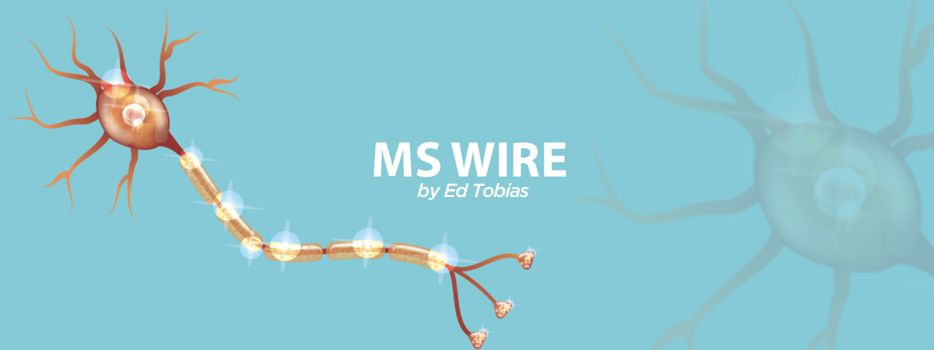MS News That Caught My Eye Last Week: Ofatumumab, Aubagio, Oral DMTs, PoNS Device
Written by |

Ofatumumab Seen as Superior to Aubagio at Lowering Relapse Rates in Phase 3 Trials
Ofatumumab is a cancer medication that’s awaiting approval by the U.S. Food and Drug Administration and the European Medicines Agency to treat MS patients. It’s delivered by injection once a month and aims to reduce MS inflammation by targeting a certain type of B-cell. If approved, it would be the first B-cell therapy that can be self-injected at home.
Aubagio (teriflunomide) is a once-a-day pill that targets B-cells and T-cells. It’s been in use for several years, and I was treated with it at one time. Would I have switched to a “superior” ofatumumab if it had been available? Probably not, even if it proved to be more effective. One of the reasons I was using Aubagio was to get away from giving myself an injection.
Novartis‘ ofatumumab outperformed Aubagio (teriflunomide) at lowering the frequency of relapses and preventing disability progression among people with relapsing forms of multiple sclerosis (MS), a study based on clinical trial data reports.
The study, “Ofatumumab versus Teriflunomide in Multiple Sclerosis,” was published in The New England Journal Of Medicine.
Click here to read the full story.
***
Aubagio Shows Long-term Safety, Efficacy in Relapsing MS Extension Study
Here’s another study involving Aubagio. I’m glad that it’s been shown to be safe and effective over a period of four to six years. I might still be using it were it not for my facing a steep co-pay when I changed from my employer’s insurance to Medicaid several years ago.
Aubagio (teriflunomide), taken as a 14 mg tablet once a day, shows long-term safety and efficacy in patients with relapsing forms of multiple sclerosis (MS), according to results of the Phase 3 TOWER extension study.
Treatment was generally well tolerated by the 751 patients using Aubagio for a median of 4.2 years, and up to 6.3 years, in this extension trial, with side effects remaining consistent with those reported in earlier studies, and long-term disease stabilization evident, its researchers reported.
Click here to read the full story.
***
1 in 5 MS Patients Don’t Adhere to Daily Oral DMTs, Real-world Study Finds
I found this study frustrating. It reports that some people with MS don’t keep up with their pills, and even more stop taking them entirely after less than a year. Though the study provides lots of numbers about the “what,” it fails to look into the “why.”
The researchers conclude that “implementation of efforts to improve adherence are essential to improving care of patients with MS.” But don’t we need to know why this is happening so that we can improve adherence?
Previous studies already have reported the reasons. Usually, they include cost, side effects, or lack of efficacy. So, why was this study even necessary?
About 20%, or 1 in 5, of multiple sclerosis (MS) patients fail to adhere to oral disease-modifying therapies (DMTs) taken each day, and about 1 in 4 stop using a prescribed daily oral treatment within one year, a study based on reported real-world use found.
The study “Real-world adherence to, and persistence with, once- and twice-daily oral disease-modifying drugs in patients with multiple sclerosis: a systematic review and meta-analysis” was published in the journal BMC Neurology.
Click here to read the full story.
***
PoNS Device Under Review by FDA for Treating Walking Problems in MS
This headline leaves out the most interesting thing about this device. The PoNS device stimulates the brain via the tongue. This technique doesn’t appeal to me, but after I wrote an “MS Wire” column about it last Friday, several people commented that they are anxious to get into a trial with it. Unfortunately for them, the trials are over, and if the FDA approves the device, it will be used by a therapist as part of a therapeutic program. It’s not something that patients can use on their own.
Helius Medical Technologies has filed an application with the U.S. Food and Drug Administration asking for de novo classification and clearance of its portable neuromodulation stimulator (PoNS) device for the treatment of walking deficits in multiple sclerosis patients.
The PoNS device is for use in combination with therapeutic exercise programs, and recently earned breakthrough device designation by the regulatory agency.
Click here to read the full story.
***
Note: Multiple Sclerosis News Today is strictly a news and information website about the disease. It does not provide medical advice, diagnosis, or treatment. This content is not intended to be a substitute for professional medical advice, diagnosis, or treatment. Always seek the advice of your physician or other qualified health provider with any questions you may have regarding a medical condition. Never disregard professional medical advice or delay in seeking it because of something you have read on this website. The opinions expressed in this column are not those of Multiple Sclerosis News Today or its parent company, Bionews, and are intended to spark discussion about issues pertaining to multiple sclerosis.



Kara
I used the PoNS device in Canada last summer. It was a 14 week program. I did not have any improvements in my walking. There were other clients from all over the world. None of us saw any improvements. The online YouTube videos and articles are impressive, but this was very expensive and yielded no benefit.
Ed Tobias
Hi Kara,
Thanks for sharing your experience. I'd be interested to hear from others who've tried this.
Ed